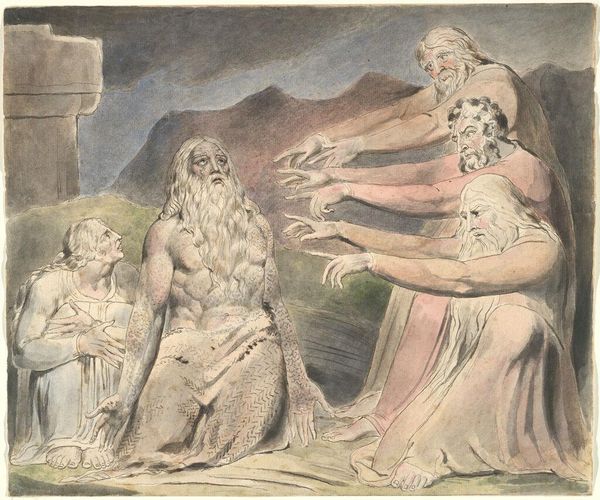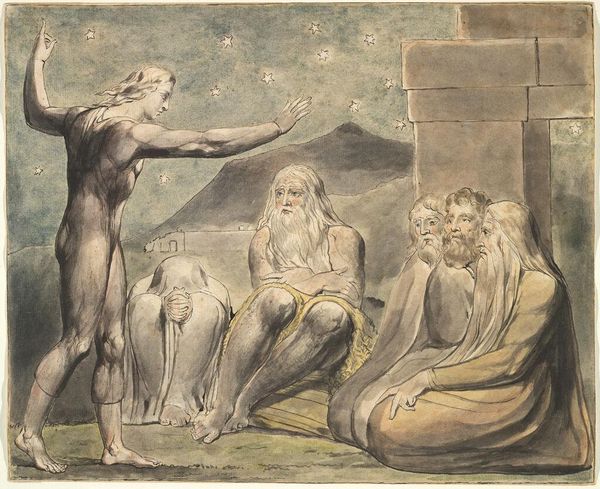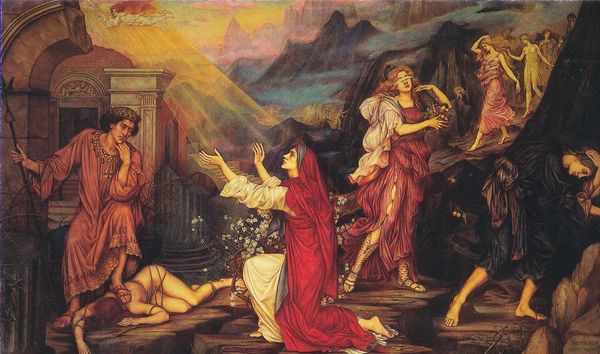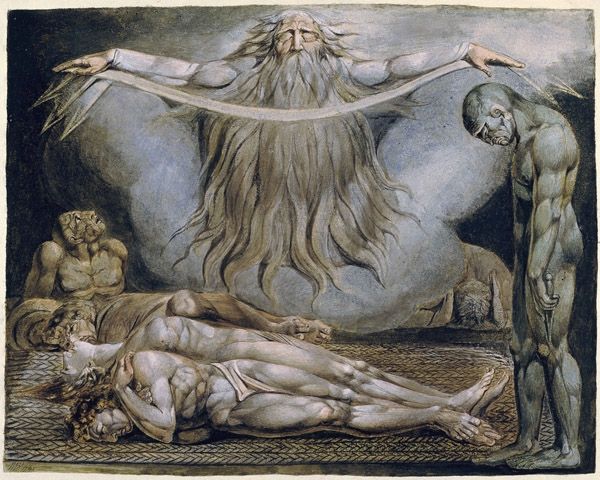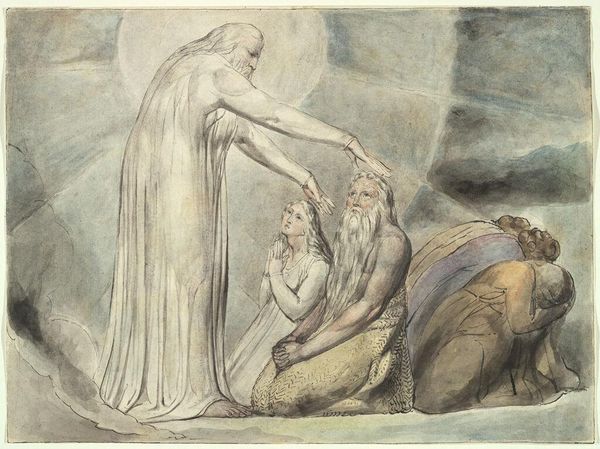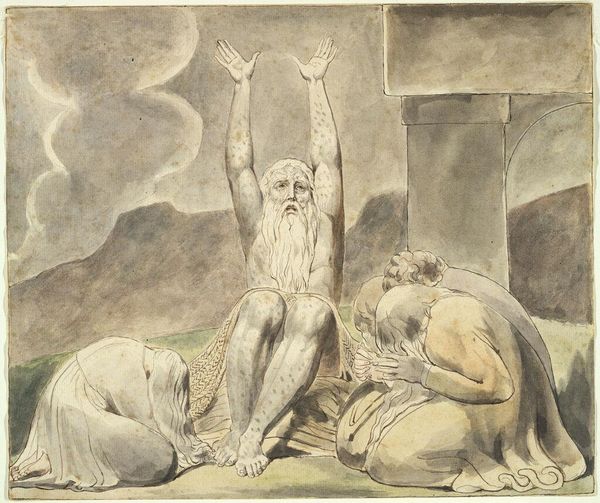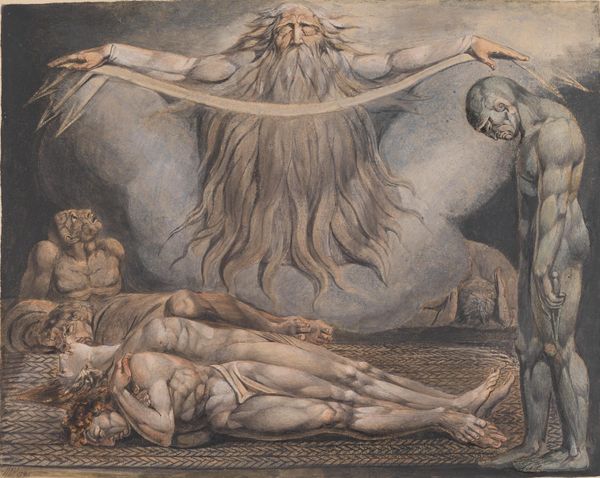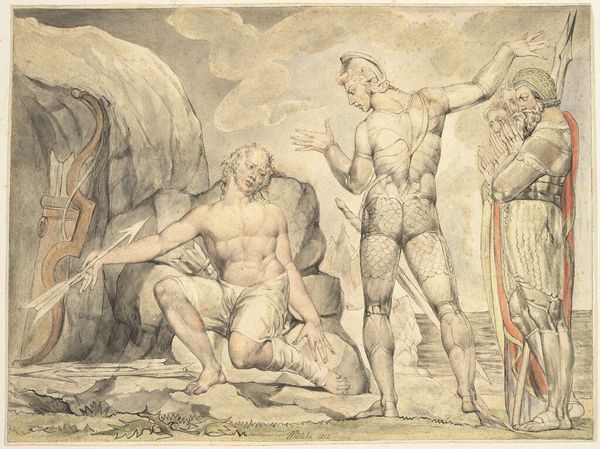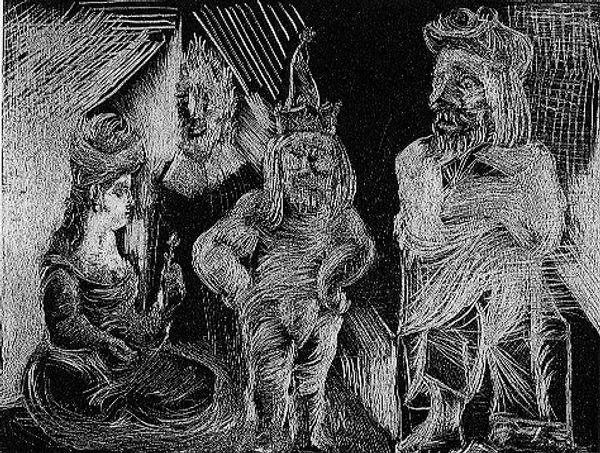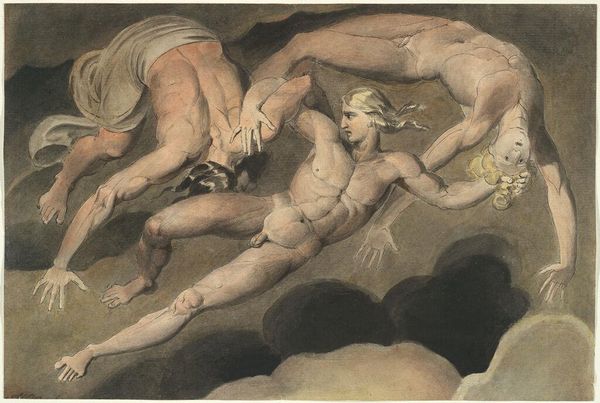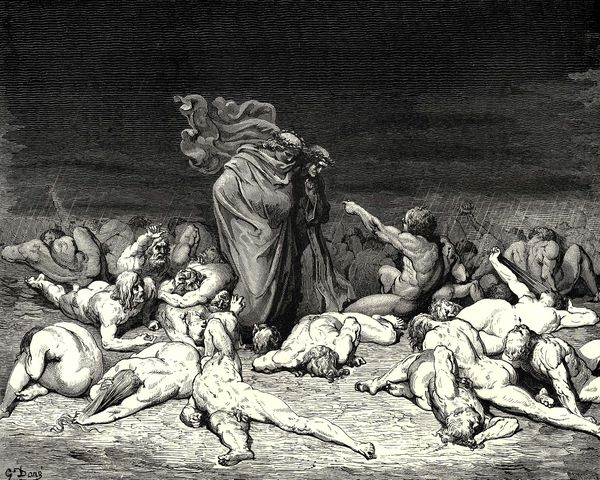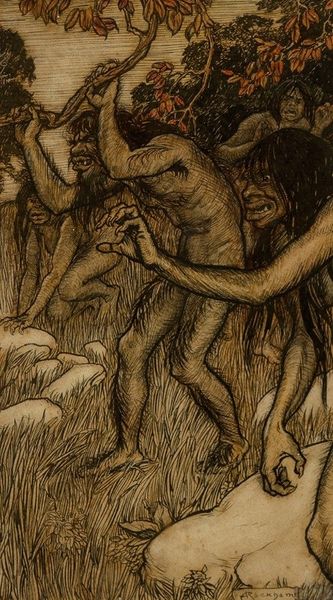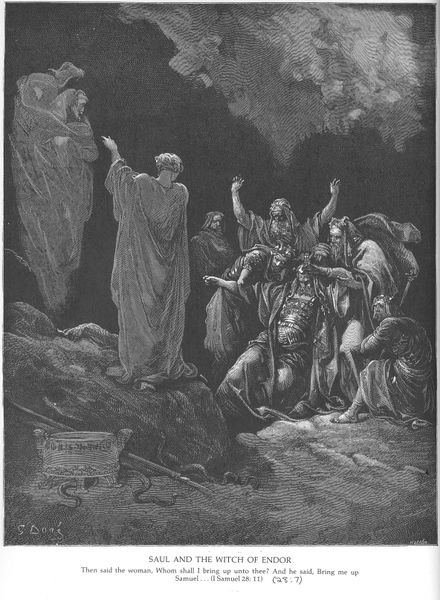
drawing, paper
#
drawing
#
narrative-art
#
book
#
prophet
#
charcoal drawing
#
figuration
#
paper
#
romanticism
#
mythology
#
human
#
line
#
history-painting
#
charcoal
#
watercolor
Copyright: Public domain
This illustration to the Book of Job was made by William Blake, using etching and engraving techniques. Blake was an English poet, painter, and printmaker, who often combined text and images to create what he called "illuminated books". Blake’s process was intensely hands-on. He developed his own printing method, using acid to etch designs onto copper plates, and then printing these in his own workshop. The lines created by the etching tool give a distinctive quality to the image, while watercolor washes add color and depth. Blake uses linear qualities to define the figures’ forms and draperies, rendering the scene with a visionary intensity. Blake’s commitment to the medium of printmaking was aligned with his political beliefs, which were radical for the time. He saw printmaking as a way to democratize art, making it accessible to a wider audience. The physical labor involved in the process – the etching, the printing, the hand-coloring – speaks to Blake’s belief in the dignity of human work and the importance of craft. He was part of a larger movement of artists and writers who rejected the industrial revolution and sought a return to more humanistic modes of production.
Comments
No comments
Be the first to comment and join the conversation on the ultimate creative platform.
